If you were James Bond, you would never have to worry about protecting yourself when traveling. You would have a wrist-mounted dart gun, explosives hiding in your toothpaste and cigarettes, a one person autogyro with rockets, guns, and rear mounted flame thrower, a ring camera, and a car invisibility cloak. No one would mess with you and get away with it.
Unfortunately, you aren’t James Bond, unless you are, in which case, you really don’t need to read this article. However, assuming that you’re not an international spy, traveling alone can be dangerous, but sometimes it needs to be done.
Whether you need or want to be traveling solo, danger lurks around every corner. From criminals, to bug bites, to bacteria, there are a plethora of situations you need to avoid, and here are a few ways you can do just that.
Gadgets
Ok, so maybe you’re not James Bond, but there are some pretty nifty gadgets out there that you can arm yourself with, even if they don’t include a flame throwing bagpipe.
1. A Door Jammer
When you’re at home, you can be pretty sure that there are no people lurking outside with keys to your house. When you’re in a hotel, not so much. Even though hotel personnel is generally considered trustworthy, they can gain access to your room, and big time crooks can even make master and individual key copies. That’s why you might want to consider including the DoorJammer on your packing list. This mini barricade allows you to render almost any door impossible to open. Just slip the boot underneath the door, screw the other end down against the floor, and you’ll start feeling more invincible immediately.
2. An Affordable Door Alarm
The effect of an alarm is twofold. It alarms both you and the criminal. That means you know they’re there, and they know you know, which means you’re prepared and they’re likely to disappear. An inexpensive door alarm can be simply made and highly portable. Most consist of a wire, which you insert between the door and doorframe, attached to a lightweight alarm. But don’t let the size fool you. When the trigger gets disturbed, the 100 decibel sound is sure to send the crook running, and alert anyone in the immediate, or not so immediate, area.
3. A Wallet Necklace
It used to be that the safest place to put money was in a bra. Of course, the condition of the money once retrieved might be a bit questionable, but still the cleavage does seem to serve as something of a criminal deterrent. The Bellroy Travel Wallet solves both problems. This wallet can be worn around your neck, so it’s not in your pocket, where criminals are most likely to paw, and away from your skin and your bra line. It comes with plenty of built- in pockets, so you can throw in coins, paper money, travel documents, and even a Smartphone.
4. Cross Body Purse
You may already have discovered that wearing your purse across your body, rather than over your shoulder, will make it a little easier to keep secure, but the Citysafe CX Anti-theft Cross-body Purse takes the cross- body to a whole new dimension. This purse features a cross- body strap supported by a steel cable, which means your safe from the slash and grab robberies. One end has a locking clasp that lets you loop the strap around table or chair leg while your dining to let you enjoy your meal without fear of your valuables disappearing, so long as you don’t forget about it when you hit the buffet table.
5. The Drawer Safe
Most hotels offer a safe where you can store your valuables, but some feel it is not the safest safe. Anyone on the staff may have a master key code, it might be too small to fit your stuff, and there is a fear that you it just won’t open when you need it to. The BioXsafe solves all these problems. This device is essentially a spring loaded clasp with a lock on it which grips the sides of the safe, making it difficult to pry off. It extends to 22 inches which means you can secure a desk drawer or piece of furniture if the room doesn’t come equipped with its own safe, and you can always get it open when you need it.
6. Beverage Safeguards
Water purifying bottles use filtration to eliminate bacteria and pollutants without the use of chemicals, so your drinking water is guaranteed safe. But if you’re talking about adult beverages, you may want to consider taking along some detection strips to make sure no one’s slipped anything in your drink to make you even more relaxed than you intended. Simply dip your finger in the liquid, put a drop on the stick and if the color changes, you may want to pour your drink over someone’s head.
7. Hide in Plain Site
Of course the best hiding places aren’t hidden at all. There are gadgets with secret compartments designed to stash money, keys, and credit cards. Invest in laptop cases with fake bottoms, or sandals with hollow soles. Hide your valuables in an old tennis ball or go with some fake bottles of sunblock, or dare to go bold with some old underwear that even the baddest of bad guys would think twice about rifling through.
Keeping Safe
While there are a plethora of gadgets you can arm yourself with, your most valuable asset when traveling is yourself. Therefore it is especially important to recognize possible danger and know how to avoid it. Here are some tips for using your most effective resource.
1. Stash Your Stuff
Just in case you don’t choose to load up your suitcase with gadgets, there are ways of keeping your valuables from getting ripped off. Hip pockets, shoes, socks, and yes, even bras are all better options than your purse and pockets. Also, keep your daily spending cash in a spot where it’s easy to reach. You don’t want to pull out a wad of bills at a hamburger stand; you’re likely to attract unwanted attention.
2. Don’t Make It Obvious That You’re Flying Solo
Never tell people your traveling unaccompanied. Even if someone asks you how long you intend to stay, always respond in the plural pronoun: “We intend to stay here for a month. We love it here.” The question may be innocent, but there’s no need to advertise your lack of back up.
3. Know Your Destination
Before embarking on your trip and before you leave the hotel room, make sure you have your travel route down. Try not to pull a map out in public, even in a car. Avoid leaving maps with your route plotted in your room of rental car. A GPS is a safer, less traceable option.
4. No Loitering
Baser elements are always looking for targets, and a moving one is harder to hit. Avoid hanging around rental car facilities, airports, and other common interim spots. Don’t stop for phone calls, a quick bite, or to check messages. Do what you need to and move on as quickly as possible.
5. Blend In
As much as you may like to show off our fashion sense when traveling, you don’t want to appear too rich, you don’t want to look like a tourist, and you don’t want to dress provocatively. Pack light so you can move as quickly as possible, leave the expensive luggage home, and keep bags locked. Read up on the climate and customs before you embark to make sure you do like the Romans do. Stash the camera, the map, and the water bottle and try becoming a regular at a small grocery store or coffee shop. They may know you’re new, but say “hi” as if you’ve been coming in every day for the past five years.
Know the money well. Fumbling with money will clearly label you as a tourist. Carry a shopping bag from a local retail chain, and observe the locals for body language cues and emulate their behavior.
6. Take Care When Choosing Your Accommodations
Try to choose a well-reputed hotel chain with a good record of safety. Some hotels offer women-only floors. Request a room near an elevator, above the ground floor, away from stairwells and emergency exits. If a large hotel is not an option, consider a bed and breakfast or small inn before taking a room in a motel. Make sure you have a place to stay before you travel. Don’t plan on hitting the town and then searching out accommodations.
7. Protecting Yourself at the Hotel
If you’ve chosen your hotel wisely, you’re probably reasonably safe, but better safe than sorry. Here are some practices you may want to employ just to be extra sure.
- Sign in using your first initial instead of your first name, or sign in as Mrs. or Mr.
- Make sure to grab a hotel postcard from the front desk with the hotel’s name, phone number, and address. Keep it with you at all times.
- Leave the ‘Do Not Disturb’ sign on the door when you go out. It may deter a less determined burglar.
- Leave the TV or radio on to give the illusion that your room is occupied.
- Secure windows and adjoining balcony doors when you arrive, and make sure the room is empty before locking yourself in.
- Use valet parking.
- Never be hesitant about asking for an escort to your room.
- Use door jammers to keep unwanted company out.
8. Look Confident
Head up, shoulders back, stay aware. Don’t look like a victim, you may become one.
9. Know Self Defense
Many police departments offer classes in self defense, as do YMCA’s and certain religious organizations. Your company may be willing to foot the bill for a class, or you may be able to encourage your boss to sponsor a class in the workplace.
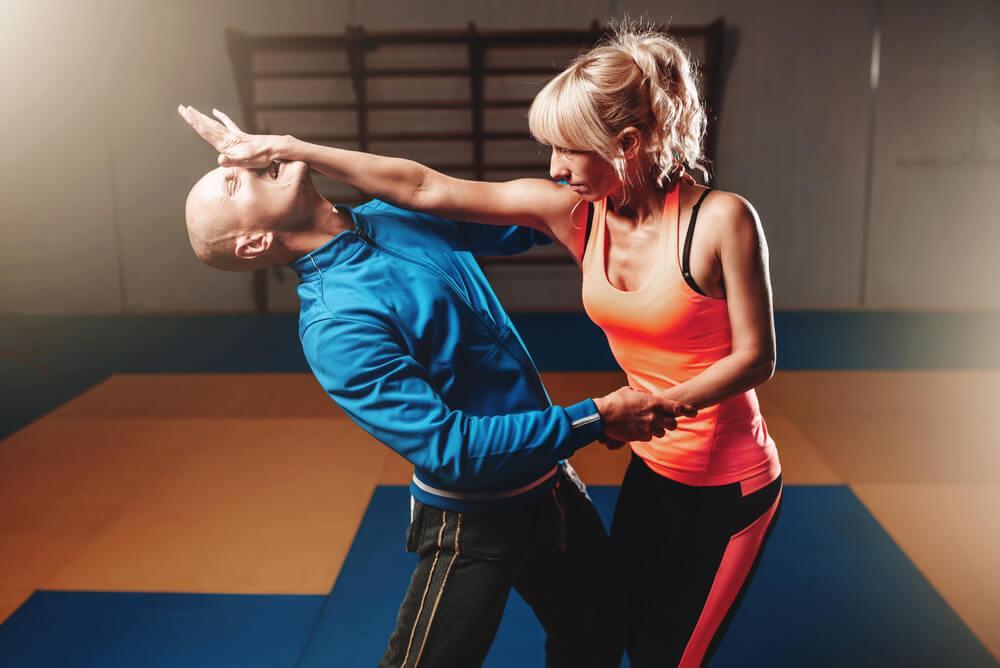
If the physical stuff is not for you, read up on personals safety devices, but be aware, these probably won’t get you through airport security. You can get around this by ordering the device and having it delivered to the concierge at the hotel. Personal delivery may violate postal regulations.
10. Don’t Talk To Strangers
Mother’s advice is still the best. Be aware of the friends you make, especially those not introduced through an associate. Don’t socialize with strangers, and limit your alcohol intake.
Staying Safe and Healthy
Whether solo or with friends, your health is always important. Make sure you research your destination and find out if the area you are traveling to is prone to natural disasters, and know what to do in the case that one occurs. Check travel warnings to see if your destination poses risks of terrorist attacks or violence. Research local laws and culture using guidebooks, websites, and other forms of media.
Pack for Safety
Here is a list of items you may want to think about as your packing for your trip.
1. Prescription medicines you usually take
2. Special prescriptions for the trip:
- Medicines to prevent malaria
- Prescription medicine for diarrhea
3. Over the Counter Medicine, such as:
- Antidiarrheal medicine
- Antihistamine
- Anti-motion sickness medication
- Pain or fever medication
- Mild laxative
- Cough medicine and cough drops
- Antacids
- Antibacterial ointments or creams
- 1% hydrocortisone cream
Other Important Items
Here are some other items you may find useful in some circumstances:
- Insect repellant with 30-50& DEET or up to 15% picardin
- Sunscreen
- Eye Drops
- Antibacterial hand wipes or hand sanitizer
- Basic first aid items
- Oral Rehydration solution packets
- Altitude Sickness Medication
- Water purification tablets.
- Health Insurance Card
- Mild sedative or sleep aid
Leave Information with a Friend or Family Member
When you prepare for a trip, it’s also important to prepare your friends and family for the advent of a possible emergency. Choose a friend or family member to be your contact while traveling. Make sure to check in at regular intervals during your trip. Give them a copy of your passport, a contact number, and your expected itinerary. Leave them a copy of any prescriptions for medicines your taking and contact info for your doctor.
Before You Leave
Check your government’s travel site to make sure you have the documents you need for travel. You may also want to register with your government. Registering as a citizen traveling abroad will put you in touch with your countries embassy and offer you protection in the case of emergency.
Remember, traveling alone is a great opportunity for discovery, both inner and outer, as long as you don’t discover you’ve just had all your things ripped off or that you’re in a situation you would prefer to avoid. Let us know how you manage to keep your travels fun and safe, and let us know if you have any advice to help out the less seasoned travelers among us.

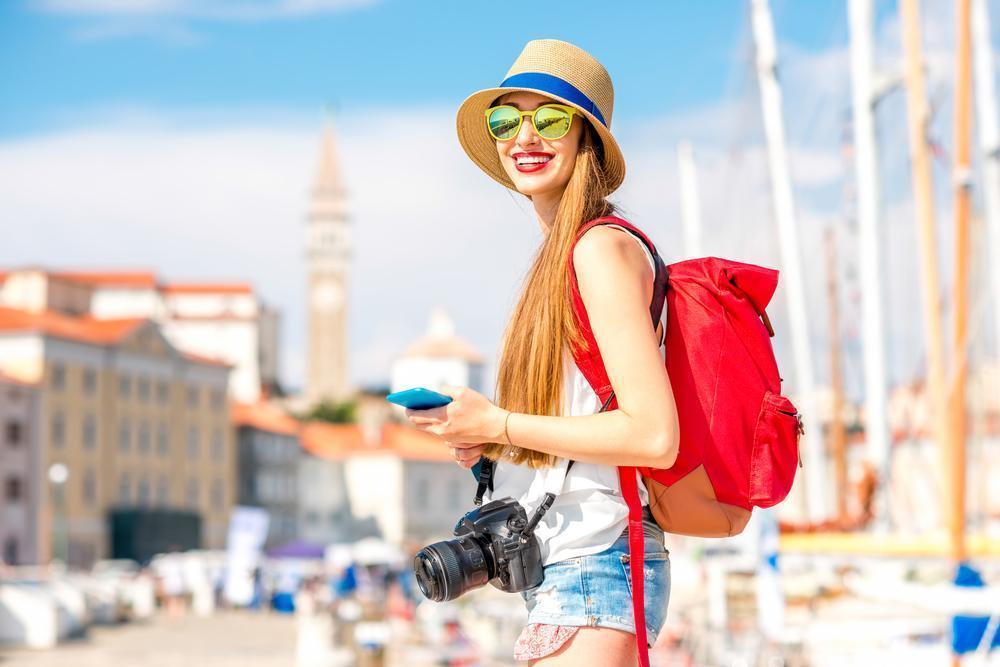

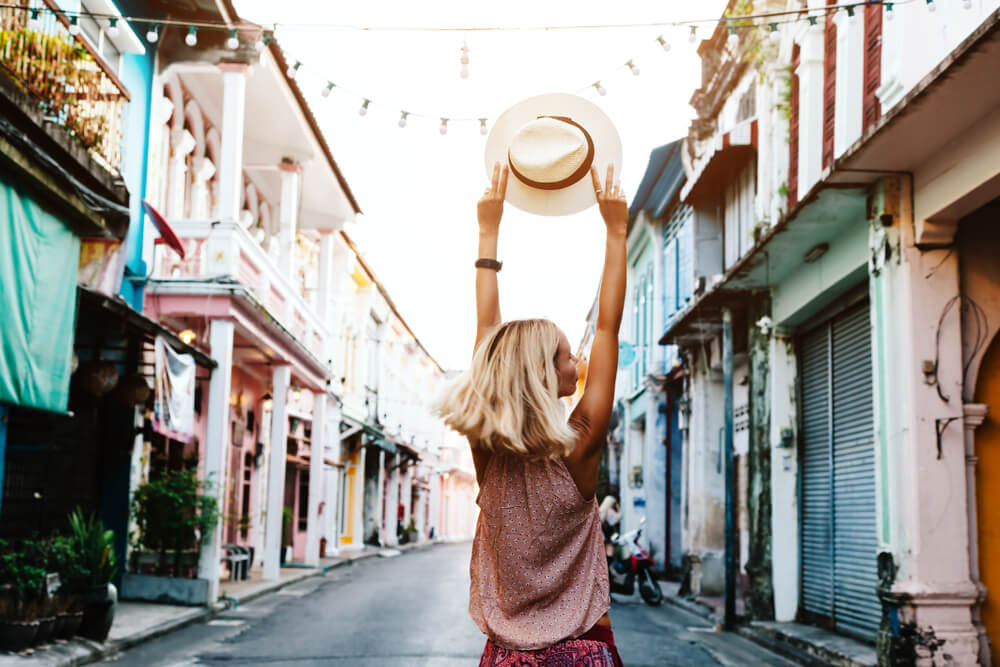
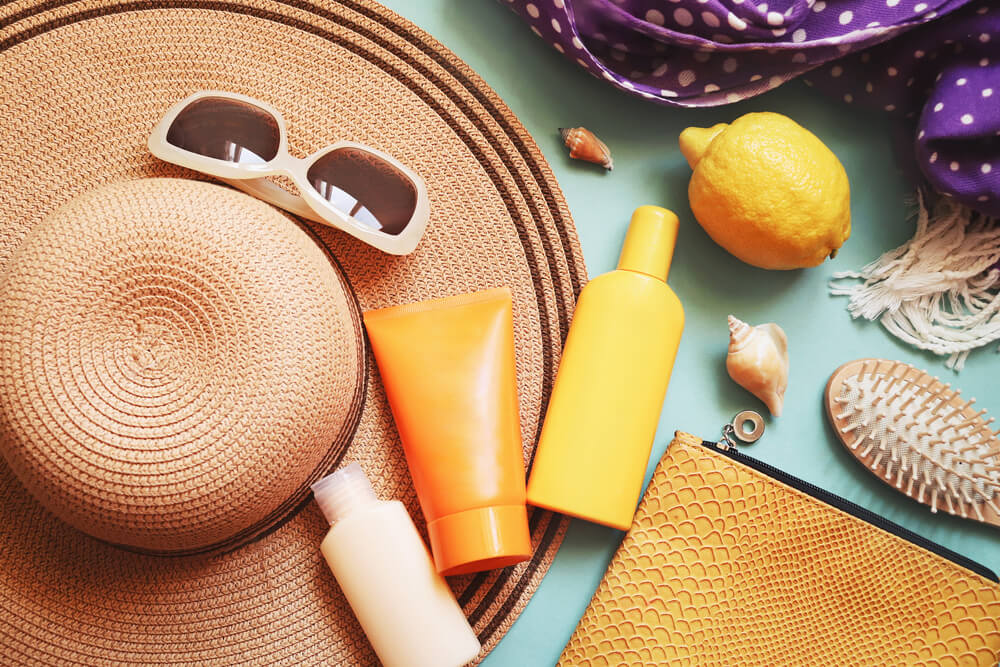
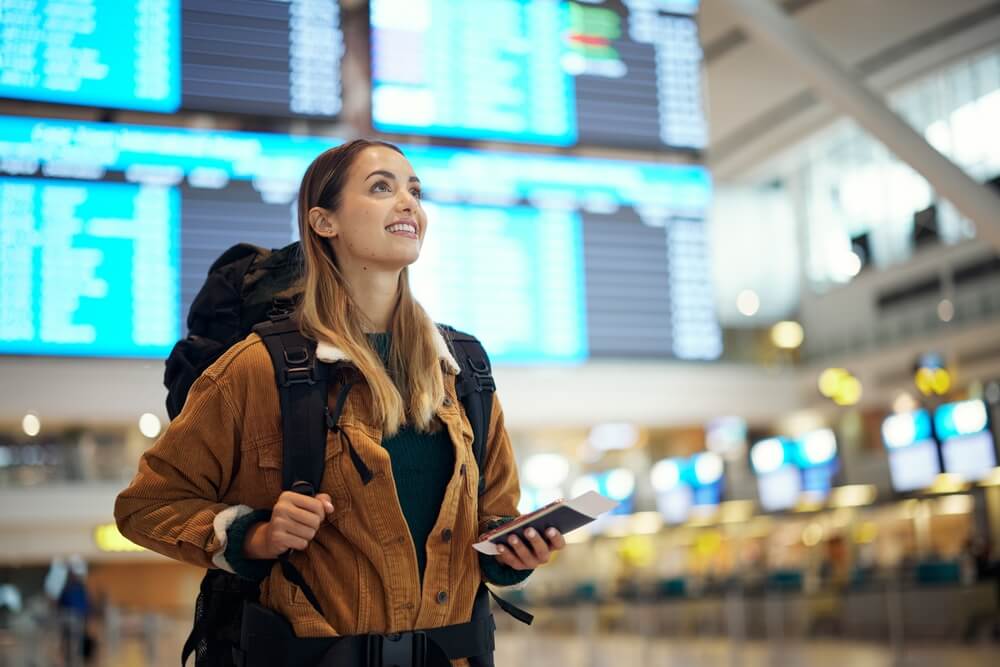
Leave A Comment